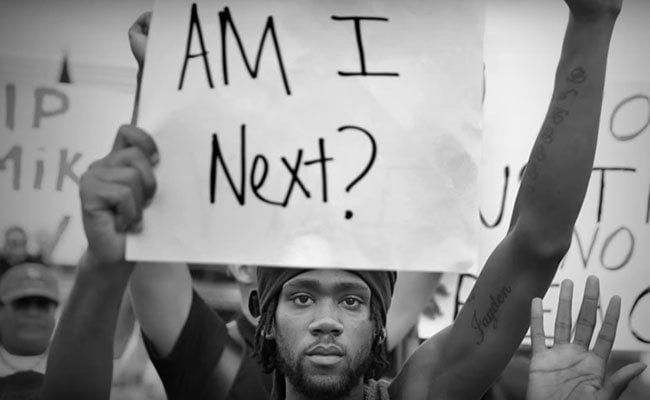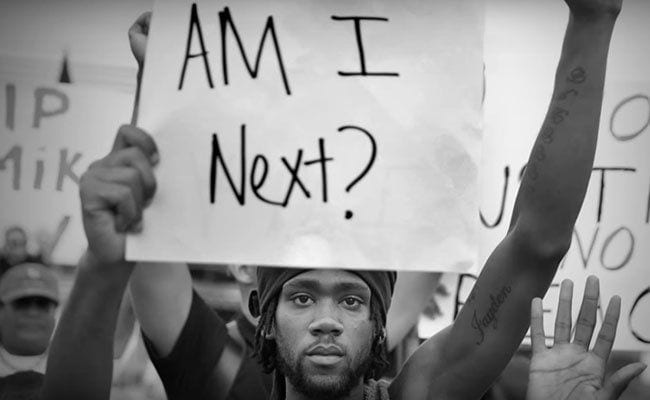
Ava DuVernay’s 13th may broaden the way we think about investigative journalism and the way to properly harness the information age toward meaningful progressive change. Delivered in a breathlessly paced tapestry of interview clips, statistics presented over somber black and white graphics, and historic footage continuously juxtaposing early 20th century forms of nakedly violent racism with more latent (and overt) contemporary forms of the same, 13th captures severe racial injustice not so much as a series of separate events than as a smothering inferno singed deep into our economic, social, and legal systems. The effect is an immersive feeling that preconceived notions of progress must be severely re-examined.
13th operates through a steel tight paradigm: so long as certain politicians and corporations can exploit malleable forms of racial injustice toward bottom-line goals of winning elections and maximizing profits, they will continue to do so. Utilizing a stream of conscious format which forsakes a piecemeal informational approach, 13th spends more than an hour whisking its audience into archival footage of domestic terrorism in the early 1900s, overt segregationist movements in the post World War II era, and contemporary campaign rhetoric of inner-city criminality, which continues to perpetuate staggering proportions of blacks and Latinos in US prison systems.
While the textual bases and ostensible justifications for each decade of institutional racism are different, DuVernay employs connective tissue throughout: hip-hop music, including The Roots’ “Criminal” and Public Enemy’s “Don’t Believe The Hype”, the key lyrics of each song (among others) scrolled across the screen in large typeface, provide ominous introductions to each decade of history; a recurring statistical counter portrays explosive increases in mass incarceration from the Nixon, Reagan, and (particularly) the Clinton Administrations; an impressive array of interview subjects, who range across the political spectrum from Angela Davis to New Gingrich, examine institutional racism not from a partisan perspective, but as an odious cultural externality.
Where 13th doesn’t hold back is in its use of historic parallelism. In one instance, 13th‘s footage of George Bush’s notorious 1988 Willie Horton attack ad is eerily reminiscent of earlier footage of D.W. Griffin’s infamously racist The Birth of a Nation, a then celebrated 1915 film in which black Americans were continuously represented as threats to white women during the Civil War and Reconstruction Era. In an even more prescient historic parallel, soundbites from 2016 Republican presidential candidate Donald Trump’s campaign speeches lionizing “The Good Old Days” is played to alternating imagery of Trump supporters harassing protestors and archival footage of the mid-20th century, when segregationist terrorism took on even more violent forms. Here, 13th‘s argument is clear: the lines between these eras are thinner and more permeable than we care to admit.
Curiously absent from 13th is an equal treatment of the George W. Bush or Obama Administrations to its predecessors. Could this be because various faceless corporations have assumed a lion’s share of control over domestic policy in the United States, and to some extent have become the new face of institutional racism in the United States? Midway through the film, 13th deftly morphs from an analysis of presidential politics to a kinetic expose of American Legislative Exchange Counsel (ALEC): a corporate chartered, reactionary non-profit organization which joins legislatures and corporations together in drafting legislation which has been responsible for, among other things, the proliferation of privatized jails which profits both from grant money awarded for reaching inmate quotas, and from contracts for inmate labor to manufacture everything from household furniture to military equipment. While the rash of content in 13th furiously accumulates, its uniform message is relentlessly steady: privatized profit-maximization at grave social costs is acceptable in America.
DuVernay’s treatment of ALEC is blisteringly one-sided, and as with other areas in the film, one may object to her deliberate editing in which interview footage of an ALEC representative is continuously interrupted by those of prison reform activists and scholars who seamlessly present inferential arguments of the so-called privatized prison complex as a perpetuation of institutional racism. But viewing 13th in the greater context of how American history is often presented, in which discrimination is largely glossed over for favorable depiction of US military and its thriving economies, 13th’s unabashed portrayal of US history from the perspective of racial oppression feels like a small yet necessary step toward proportionality.
13th may be criticized as “subjective journalism”, however, notice how interview subjects throughout the film present their opinions, calmly and elegantly, as if their arguments are pleas for deeper understanding rather than an effort to simply “win” a point. Indeed, for all the hours of ostensibly “balanced” yet deafeningly cacophonous diatribes seen from mainstream media broadcasts, 13th‘s eloquently stated brand of subjective journalism is easily more edifying.
If 13th has a minor structural issue, it’s in its somewhat abrupt deceleration in the last half an hour, during which DuVernay presents small segments of tragic personal stories pertaining to devastating flaws in the criminal justice system. However, DuVernay only spends a little time with each story, creating a sense of incompleteness. Of course, there’s only so much one can ask from a 100-minute documentary, and 13th‘s ultimate aspirations are to serve as a propulsive launching point to greater discussion and action in dealing with institutional racism. In this regard, 13th may never be held to the same esteem as Hoop Dreams or A Fog of War, but its bone-chilling effects should resonate, nevertheless.
A word of precaution toward labeling 13th as a “wake up call” is necessary. Over the last few years, viral images, blog posts, and documentaries have awoken thousands more people to various forms of institutional racism. Yet, 2016 has brought forth in Donald Trump the most flagrantly bigoted and unabashedly divisive United States presidential candidate this country has ever seen. As to Hilary Clinton, the US is gravitating toward yet another centrist presidential administration which caters to status quo institutional frameworks at the expense of urgent progress toward eradicating nationwide racial gentrification, mass incarceration, unforgiving post-conviction records, ICE detention, and dilapidated neighborhoods, just to name a few of the problems which continue to plague this country.
After Election Day, being awake in front of a computer or television screen won’t accomplish much. If 13th sets itself apart from all the other progressive informational devices, it’s due to the riveting, compelling energy. That motivation needs to be extended into the commitment required to significantly instill more efficient egalitarian measures from local to national levels throughout the United States. Such resolution can only be accomplished with in-depth knowledge and feeling. Simply a vote for a presidential candidate, or knowledge of yet another fragmentary factoid, won’t suffice.
In this regard, 13th is not so much a “wake up” call, but an entreaty to get to work.


![Call for Papers: All Things Reconsidered [MUSIC] May-August 2024](https://www.popmatters.com/wp-content/uploads/2024/04/all-things-reconsidered-call-music-may-2024-720x380.jpg)



